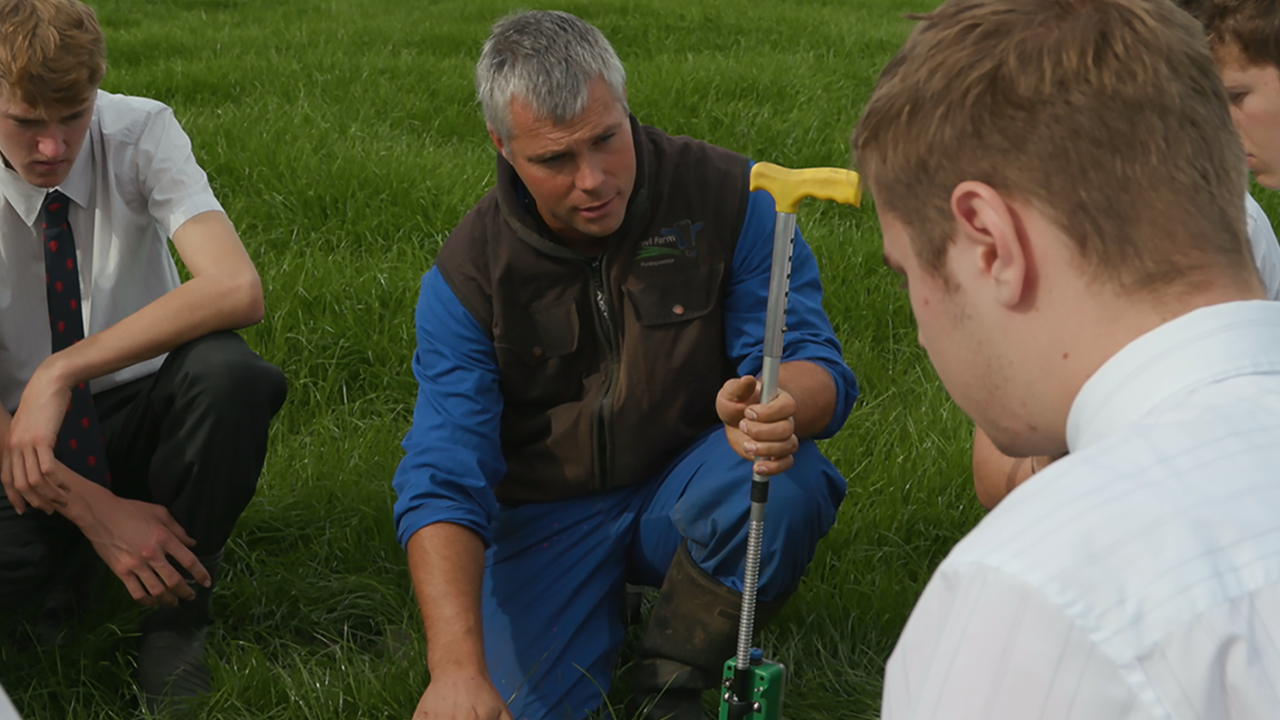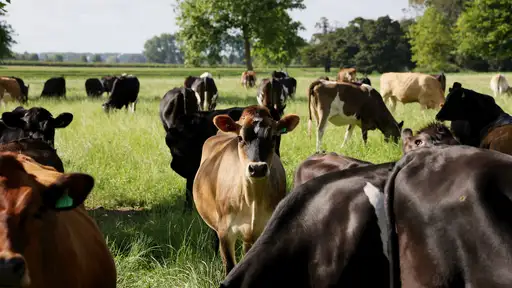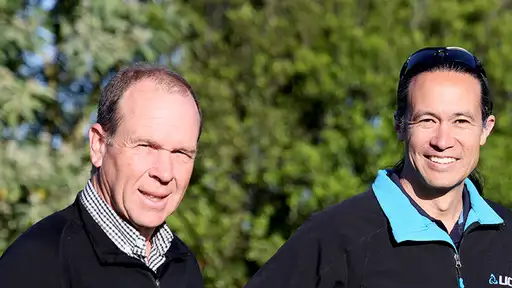Owl Farm is a demonstration dairy farm set up as a dynamic joint venture between Lincoln University and St Peters School in Cambridge. Surrounding the school, this 140-hectare farm provides Ag classes to the school and shares its learnings with the wider farming community.
As one of the founding industry partners, LIC provides technology, genetics and testing facilities to help the Owl Farm team develop a workable blueprint of sustainable, profitable dairying. We see this not only as a great way to support the Owl Farm project but to actually test out and demonstrate the real value of LIC products.
There’s a saying in farming that you can only improve what you can measure, and this was one of the big challenges for Farm Manager, Tom Buckley and outgoing Demonstration Manager, Louise Cook. They needed to have a system in place to gather a multitude of information so they could tell farmers what they’d improved. Louise explains:

So, we now have this fundamental information capture process and it's absolutely critical that we tell farmers what we've been doing. And we've got real-time accurate data that can back that up. The beauty of that is we can sit there and review and go, how did that work out? Is that what we really wanted to achieve. And if not, what can we actually tweak that will give us a slightly different outcome moving forward.
Louise Cook
According to Tom, the best tool in their shed that’s helping them achieve that outcome is LIC’s MINDA:
LIC and Owl Farm. Always improving.

Having the right systems in place is helping Owl Farm share their improvements with New Zealand’s farmers.

It's on the web and it's live all the time. You've got information at your fingertips. Some great reports can be pulled out of there. Also, on a daily basis, I'm using my MINDA App. All my staff have access to the App, they can look up a cow as they're following them down the race or out in the calving paddock, they can load a calving as it happens.
Tom Buckley
Good data. Better results.
Getting the right data is essential to achieving their goal of lifting an average performing farm into one that’s producing exceptional results. So far, the progress is solid with Owl Farm’s 410 cows producing 417 kilos a cow – which is about 1,150 kilos of milk solids per hectare.
Production, of course, is just one measure. At Owl Farm they also aim to match the best cows to the best genetics and get the best progeny born on the farm.
Tom explains. “Running a low stock system, we want the best cow out there. We don’t want any gap fillers, so it’s really important that we’re breeding the best from the best.”
During the 18/19 season they’ve had exceptional results using LIC’s Short Gestation Length genetics for the first 6 weeks on lower producing cows. The farm’s in-calf rate is up by 6% and empties down by 5% and they’ve achieved an additional 10-14 days of milk in the vat.
Again, the ability to get detailed LIC reports on reproductive performance has helped the Owl Farm management team enormously.

We've been able to analyse where we can improve, where we're lacking. One of our areas to improve on was our not body condition score across the whole herd, but individually, per animal. So, we've been using the local vets to do monthly body condition scoring individually of each cow. That has given us a management plan to manage the condition score for those animals, and that has helped give us the results we have seen during the 18/19 season.
Tom Buckley
Easing the load. Clearing the uncertainty.
This year with the transition to 12 weeks of AI, Tom and his local Agri Manager Kelli Buckley also decided to look at another LIC offering to ease the workload across the team. They chose LIC Heat Patches and from day one the job of picking out cows in heat became easier. And to assist with their herd management, they have added animal diagnostic tests to their herd test. Owl Farm tests four times a year and results have turned up a few surprises as Tom reveals:

Over the past few years, we carried a few empty cows unknowingly through the winter. So, this year we used LIC's herd testing pregnancy test across the whole herd for our final test in March. It's highlighted an issue with Neospora, and we've been able to reduce our daily demand by getting rid of our unknown empties that weren't showing up at the vet scanning in February.
Tom Buckley
As a demonstration farm, the challenge is to constantly try new technology and share the findings with New Zealand farmers. This year they used LIC Field Assist to challenge some traditional thinking.

This year we used LIC Field Assist and weighed every cow walking out of the cowshed. It was seamless. It really showed us that some of those cows that we thought were our best producers because they were a nice big cow with a nice big udder, weren't actually producing as much as some of the smaller cows that have produced more than 100% of their bodyweight in milk solids, which is our aim.
Tom Buckley
Wise words from Owl Farm.
There are environmental and social challenges out there for farmers that Owl Farm is also paying close attention to. After all, what’s the point of a demonstration farm if it totally ignores some of the biggest issues facing farmers today.
Louise Cook, Owl Farm’s Demonstration Manager has some departing words as she heads to the Southern Dairy Hub in Invercargill.

We have to have a better accounting of the environmental outputs of the farm. We're being made aware of the fact that we have to understand what those are and possibly change them. The expectation on us around animal welfare is vitally important and we need to keep lifting our standards in line with our customer's expectations. But more importantly, with how we believe we should be farming our animals and looking after them. Ultimately, these are the beginnings and the ends of our business.
Louise Cook
We couldn’t agree more.





